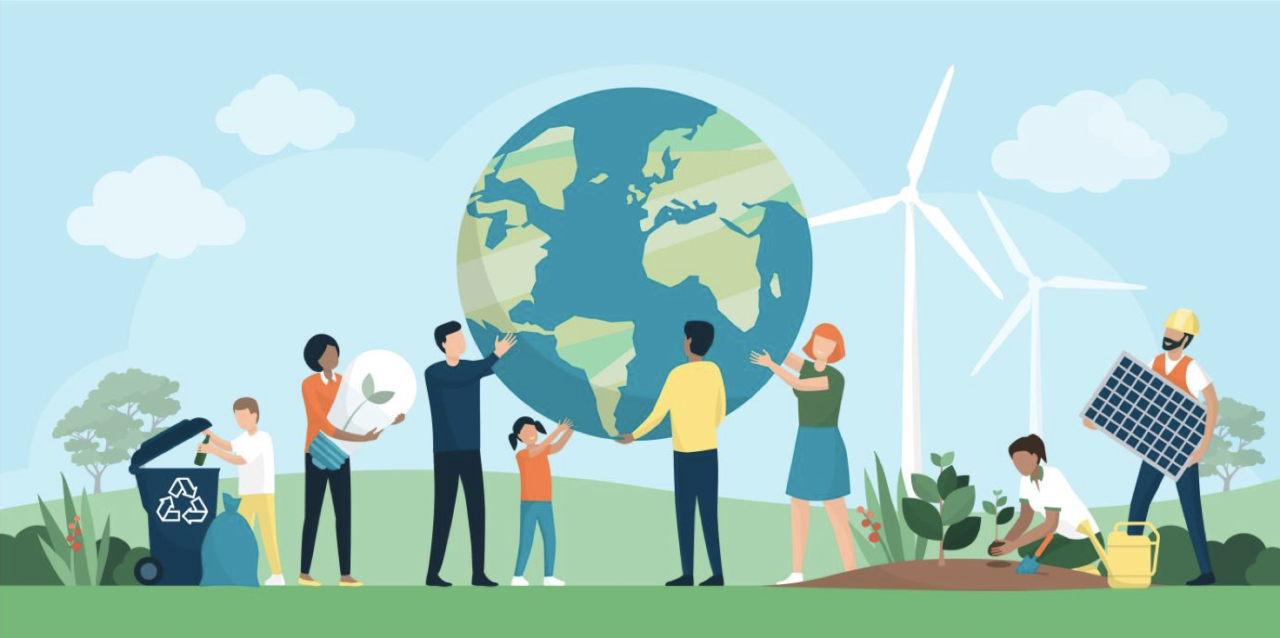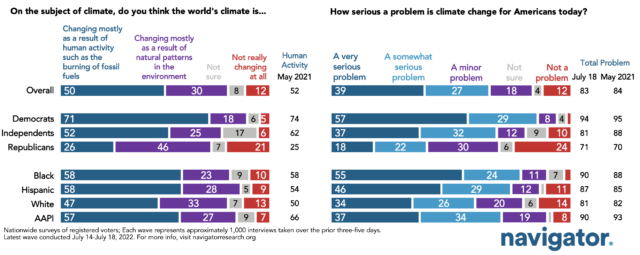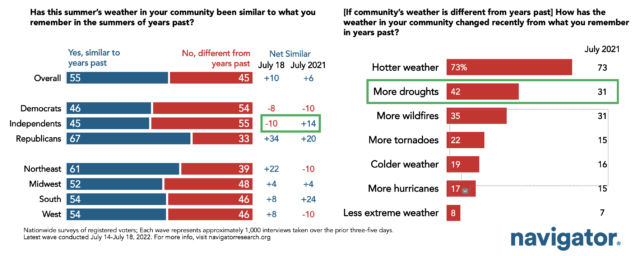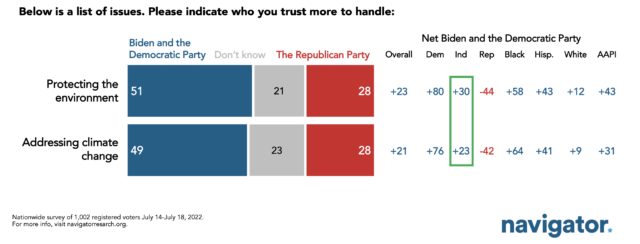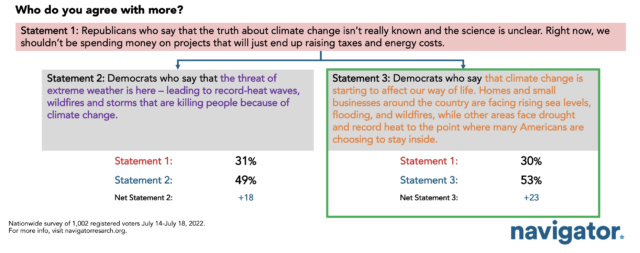- Four in five Americans believe the climate is changing and that climate change is a problem for Americans today.
- Those who say that the weather in their community has changed are most likely to cite hotter temperatures and increased droughts and wildfires.
- Biden and Democrats are more trusted than Republicans when it comes to protecting the environment and addressing climate change.
Half of Americans Agree Climate Is Changing Because of Human Activity and Even More Say It’s a Serious Problem
Four in five (80%) believe that the climate is changing, with 50% believing that change is mostly the result of human activity; only 12% of Americans believe climate change is “not a problem” for Americans today, driven by 24% of Republicans.
Almost Half Say Weather This Summer Different From Past Years
More than half of independents (55%) say this summer’s weather locally is different from summers past, up 12 points since last year.
• Among those who say their community’s weather is different, an increasing share cite more droughts (42%, up from 31% in July 2021), wildfires (35%, up from 31%), and tornadoes (22%, up from 15%).
Biden and Democrats Are Significantly More Trusted on Issues Related to the Environment Than Republicans
Among independents, Biden and Democrats are more trusted to protect the environment by 30 points and to address climate change by 23 points.
Democratic Rebuttals on Climate Change Are Effective, Especially When Framing Changes in Life Instead of Fatalities
More Americans agree with each of two Democratic responses on the severity of climate change over a Republican message about uncertainty around climate change and opposition to spending money to fight it; a message that focuses on climate change impacting American life – including homes and businesses – is more effective than one that focuses on casualties caused by extreme weather.
